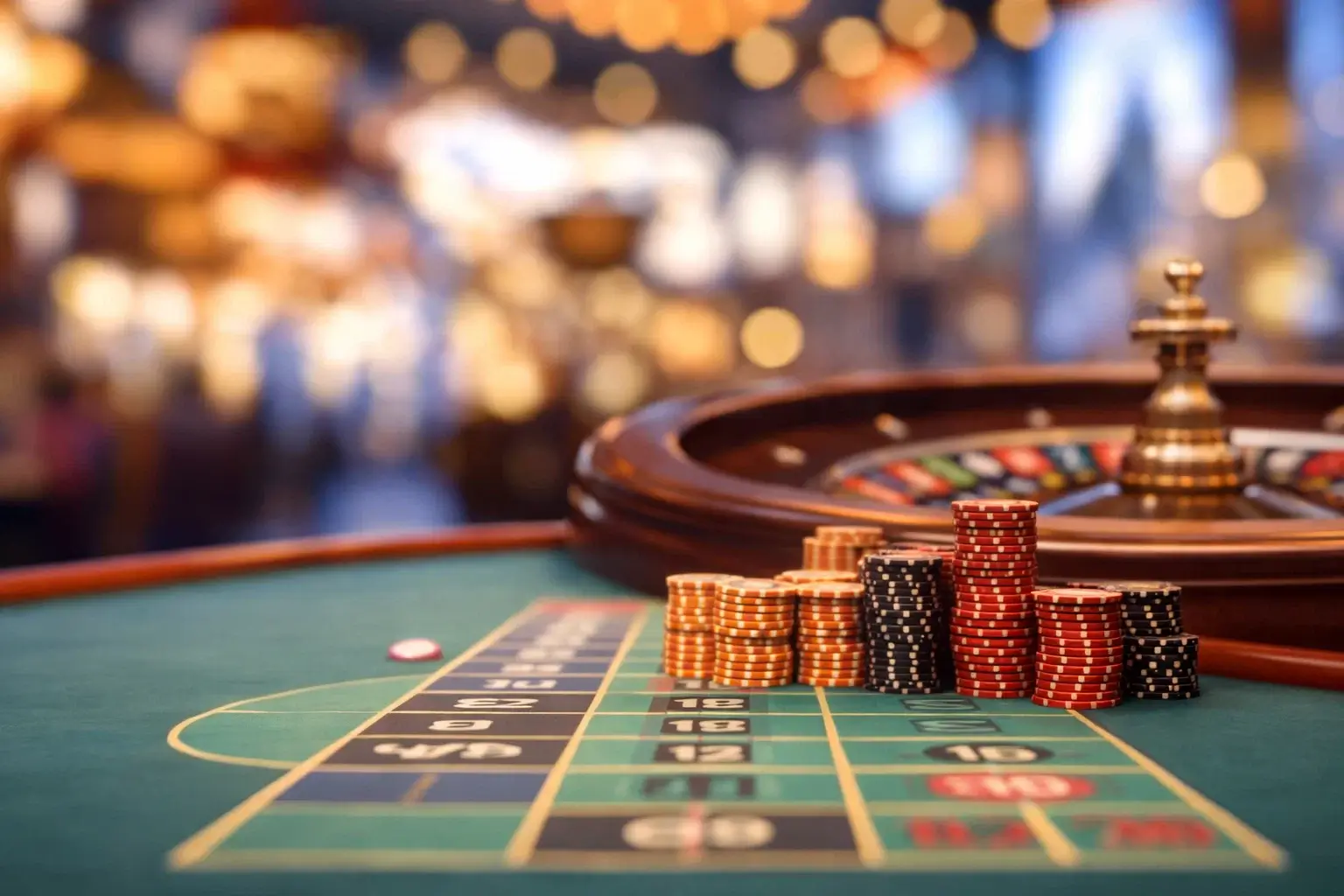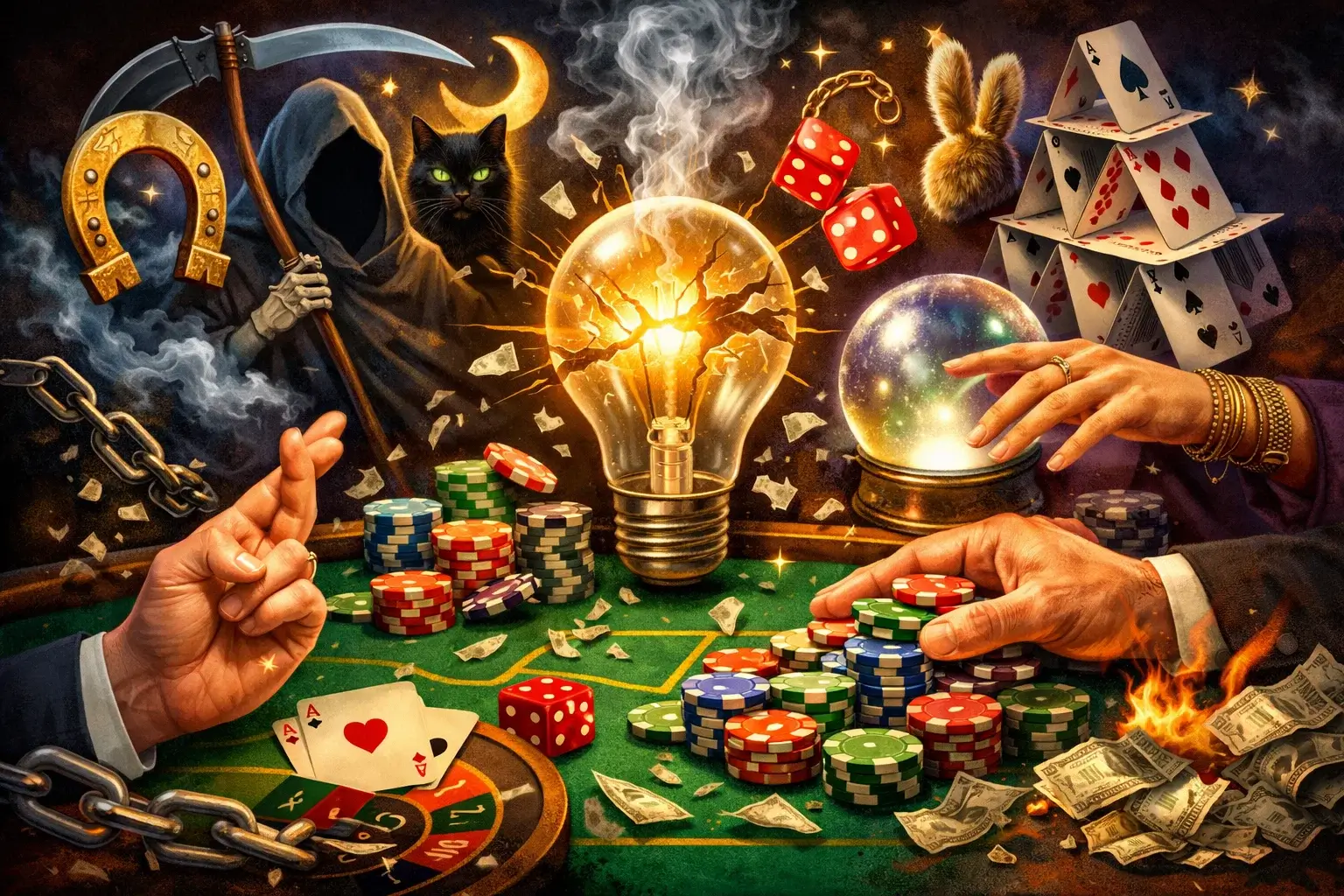When you hear the term “high roller,” you’re not talking about someone who threw a twenty at a slot machine. We’re discussing serious players who walk into a casino like they own the place, drop five figures on a single hand, and barely blink. These are the folks who’ve graduated from the regular floors and entered the rarefied air of VIP gaming. Let me take you on a tour of where these heavy hitters hang out and what makes this world tick.
VIP Tables with Limits Up to $10,000+
Picture this: you’re in a hushed, carpeted room with premium leather seats. The air smells expensive. The minimum bet isn’t fifty bucks—it’s five hundred, a thousand, sometimes five grand just to sit down. This is the VIP table experience, and it’s not just about the money; it’s about the entire atmosphere shift.
The VIP Experience Isn’t Just About Big Bets
Here’s what most people don’t understand about high-stakes tables: throwing money around doesn’t automatically get you a seat. Casinos are incredibly selective. They’re looking for consistent, serious players—people who come back regularly and drop serious coin. A guy who walks in with ten grand and gambles it all away in forty minutes? Probably not getting invited back. A woman who consistently plays fifty-hand blackjack at a thousand per hand, week after week? Now that’s someone the casino wants to keep happy.
The minimums at these tables are absolutely insane. We’re talking about venues where your typical bet is anywhere from $500 to $5,000 per hand, and limit games can push into the stratosphere. I’ve seen baccarat tables where the minimum bet is literally ten grand, and you can bet fifty times that if you’re feeling particularly ballsy (or rich—probably rich).
What Sets VIP Tables Apart
First off, the customer service is on another level entirely. You get a dedicated pit boss whose entire job is basically to make you happy. Want a specific drink? It’s coming. Want the dealer changed? Consider it done. Want the table to rotate clockwise instead of counterclockwise because Mercury is in retrograde and your mystical energy consultant said so? They’ll do it. (Okay, maybe not that last one, but they’ll definitely treat you better than the regular floor.)
The tables themselves are often in separate, climate-controlled rooms with limited access. This isn’t paranoia—it’s security theater at its finest. High-stakes games attract the kind of attention that requires professional surveillance, dedicated security personnel, and strict protocols. It’s honestly pretty cool if you’re into that Bond villain aesthetic.
Second, these tables typically have better rules and more favorable conditions than the “peasant floors” (yes, that’s what we call them in the industry—no judgment, it’s just business). Better penetration on card shoe cuts, more lenient splitting rules on blackjack, sometimes even odds rules on craps that actually make mathematical sense. The casino is saying, “Yeah, we know you’re sophisticated enough to understand the math. We’re not trying to completely fleece you—just most of the way.”
Baccarat: Why It’s the Darling of High Rollers
If there’s one game that screams “I’ve made serious money and I know what I’m doing,” it’s baccarat. This game has serious prestige, and there’s legitimate reason why it dominates the VIP rooms worldwide.
The Beautiful Simplicity
Here’s the gorgeous truth about baccarat: it might be the easiest game in the casino to actually understand. There’s literally no skill involved. You pick either Player, Banker, or Tie, and then you sit back and watch. The dealer does literally everything. You’re not hitting or standing. You’re not deciding on strategy. You’re just… picking a side and watching cards flip over.
But here’s where it gets interesting: because the game is so simple, it’s incredibly social. You’re not staring intensely at your cards trying to figure out blackjack strategy. You’re chatting with the person next to you, ordering champagne, making friends with the pit boss, and generally enjoying yourself like a civilized human being. For high rollers who’ve made their fortunes, baccarat is basically just a fancy social club where money happens to be changing hands.
The Banker Always Has an Edge (But People Love It Anyway)
Baccarat has a quirky mathematical property: the Banker bet actually has a slight mathematical advantage over the Player bet. This is because the Banker acts last—they get to see what the Player draws before deciding whether to take a card. The casino knows this, which is why they charge a commission on Banker wins (usually 5%, sometimes 4% at fancy places).
Now here’s the hilarious part: even though everyone knows this, people still play Player and Tie regularly. It’s like walking into a restaurant, seeing everyone order the cheaper sandwich, and then deciding to order the triple-decker because you like the symmetry of the plate. High rollers understand the math intellectually, but they’re playing for entertainment and the social experience, not because they think they’re going to beat the odds.
The Tie Bet: A Beautiful Way to Lose Money
The Tie bet—where you’re betting that Player and Banker will get the exact same total—pays 8:1 or 9:1 depending on the venue. Statistically, it hits about once every eleven hands. Do the math. It’s a garbage bet. Everyone knows it’s a garbage bet. And yet, at VIP tables, people still throw money at it like they’re feeding pigeons in the park.
Why? Because one guy hits it for five grand on a five-grand bet, wins forty grand, and suddenly everyone at the table is chasing that feeling. This is why baccarat players are endlessly entertaining to watch. They’re not trying to “beat the game”—they’re trying to experience that specific moment of pure luck and spectacle.
Why Casinos Love High-Roller Baccarat
Here’s a trade secret: casinos absolutely love baccarat at high stakes because the house edge is mathematized, predictable, and relentless. A $10,000 hand of baccarat generates revenue at a rate that would make a slot machine weep. And because there’s no player skill involved, the casino knows they’ll make their money eventually. It’s not a question of if—it’s just a question of when.
Plus, baccarat attracts a specific clientele: serious international players, especially from Asia where baccarat has deep cultural significance. These aren’t people playing with their rent money. These are legitimate business owners, professionals, and genuinely wealthy individuals who view this as entertainment. The casino’s job is to make sure that entertainment is impeccably presented.
Exclusive Blackjack Variants for Premium Players
While baccarat is the king of VIP rooms, blackjack has been making serious moves up the ladder. But not regular blackjack—we’re talking about special variants with rule modifications that actually make the game more interesting for sophisticated players.
Blackjack Switch: The Game for People Who Like Decisions
Blackjack Switch is blackjack’s cooler older sibling. Instead of playing one hand, you play two hands simultaneously. Here’s where it gets spicy: you can actually switch the top cards of each hand if you want. This adds an incredible layer of strategy and decision-making.
Imagine you’ve got 10-6 in one hand and 10-5 in the other. You switch the sixes and sevens, giving yourself 10-7 in one hand and 10-6 in the other. It’s a subtle change, but in blackjack, subtle is everything. This appeals to high rollers because it separates the thinking players from the button-pushers. You’re actually engaging your brain, using strategy, and feeling like your decisions matter.
The catch? House rules adjust to compensate. Often, a natural blackjack pays 1:1 instead of 3:2 (which is absolutely brutal), and twenty-two doesn’t push against your busts—you win outright. But the elite variants at premium tables sometimes offer better payouts as a sweetener for high-roller action.
Perfect Pairs: Spicing Up Blackjack with Side Bets
Then there’s Perfect Pairs, where you’re not just playing regular blackjack—you’ve got a side bet that pays out if your first two cards are a pair. Perfect Pair (same suit) pays huge. Colored Pair (same color) pays good. Mixed Pair pays okay. Regular pair pays meh.
Now, mathematicians will tell you that side bets are sucker bets, and they’re technically right. The house edge on these is measurable and brutal. But here’s why high rollers love them: they create exciting moments. They turn a mundane “hit or stand” decision into something with dramatic potential. It’s not about beating the odds—it’s about creating entertainment value for your entertainment dollar.
Pontoon and Other Exotic Variants
Some high-stakes casinos offer variants like Pontoon (basically blackjack with different terminology and rules), Chinese Blackjack, or other regional variations. These appeal to international players and add variety to the VIP experience. It’s like having multiple radio stations instead of just one—more options keep people engaged.
Loyalty Programs and Cashback for Regular Players
Here’s where the casino gets genuinely clever. They’re not just making money off your losses—they’re actively paying you to keep losing.
The Tiered VIP System: From Regular to Absolutely Untouchable
Most casinos run tiered loyalty programs. At the bottom, you’re maybe earning a point per dollar wagered. Climb the ladder and that becomes 1.5 points, 2 points, or even more. These points convert to comps—free play, hotel rooms, show tickets, or actual cash back.
But for true high rollers, the system changes entirely. You’re not accumulating points anymore. You’re getting assigned a relationship manager—a specific person whose job is literally to make sure you’re happy. This person knows your preferences, your birthday, your favorite drink, whether you prefer your dealer chatty or silent. They’re orchestrating your entire experience.
Cashback: The Casino’s Way of Saying “Please Keep Losing to Us”
Some elite programs offer direct cashback. We’re talking about 1% cashback on average, but for the highest tier players, it can reach 2-3%. Now, here’s the beautiful part: that seems small until you realize we’re talking about a player who might be gambling $100,000 in a weekend. One percent of that is a thousand bucks back. That’s real money.
Is it enough to offset losses? Almost never. But it’s enough to make you feel less bad about them. Casinos understand psychology better than most therapists. By giving you $1,000 back, they’re creating a narrative where you didn’t lose ten grand—you lost nine grand, and you’re playing with “house money” on that last thou. This psychological tickle keeps you at the table longer.
Free Play: The Gateway to “Just One More Hand”
Free play credits are perhaps the most diabolical casino innovation ever. You’re offered $500 in free play. Obviously, you need to use it, so you sit down at a table. You’re up $100 within five minutes. Do you pocket the $600 and leave? Of course not—you’re on a heater! So you keep playing. Fifty hands later, you’re down $2,000. But hey, you got the free play!
This is entirely intentional. The casino knows that free play doesn’t make you money—it makes you play longer, and longer play favors the house. It’s like a drug dealer giving you a free taste. They’re not doing it out of kindness; they’re doing it because they know what comes next.
Suite Perks: When the Casino Literally Pays Your Vacation
For the absolute tier-one high rollers, the casino doesn’t just offer cashback and comps—they literally pay for your entire experience. Want to bring your girlfriend/boyfriend for a romantic weekend? The suite’s free. Want to take your business associates to a show? Comped. Want to have a private dinner prepared by a Michelin-star chef? The casino is calling in favors to make it happen.
This isn’t generosity—it’s investment. If a player is putting $500,000 through the casino over a year, spending $10,000 on their entertainment is a 2% cost of acquisition. That’s actually incredibly efficient marketing.
Private Tables and Personal Dealers
This is where the VIP experience reaches peak luxury: you’re not just at a special table—you’re at your table, with your dealer, in a private room, with whatever rules you’ve negotiated.
How Private Tables Work
A private table is essentially room rental combined with gambling. You’re paying a premium (could be $500/hour, could be $5,000/hour depending on the casino), but in exchange, you get privacy, control, and a dedicated staff.
Why would anyone do this? Several reasons. First, privacy—if you’re a CEO or politician or celebrity, sitting at a regular table where anyone can watch and phone people is exposure you don’t need. Second, control—you can set house rules. Want to negotiate a side bet payout structure? Done. Want to play a variant that’s not normally offered? Most casinos will figure it out. Third, convenience—the dealer deals at your pace, the game moves on your schedule, drinks appear without you asking.
Personal Dealers: Your Own Professional Gambler Handler
Some ultra-elite casinos will assign you a specific dealer who works exclusively with you when you’re in the casino. This person learns your quirks, your preferences, your superstitions. They know that you always want a fresh deck after a loss, or that you never bet more after winning three hands in a row.
A good personal dealer is worth their weight in reputation. They’re part psychological counselor, part entertainment specialist, part security detail. They’re there to make sure you’re having the best possible experience and, yes, to keep you playing.
The Negotiation Room: Where the Real Money Talks
Before you even get to the private table, there’s often a negotiation period. A casino executive sits down with you and basically says, “Tell us what you want.” This is where serious players negotiate better rules, higher limits, special variants, or specific conditions.
I’ve seen players negotiate down commissions on baccarat. I’ve seen others negotiate 3:2 blackjack payouts in private settings. The casino will often bend on these points because they know that keeping a whale (a term for a truly massive bettor) happy is worth adjusting house rules slightly.
How to Access VIP Rooms at Online Casinos
The online casino world has essentially democratized the high-roller experience. You don’t need to fly to Vegas anymore. You can access VIP treatment from your living room. Let me break down how this actually works.
The Tier System: Building Your Way Up
Most major online casinos use a tiered system. You start as a regular player, then through wagering activity, you climb through bronze, silver, gold, platinum, and diamond levels (names vary by casino). Each tier brings incremental benefits: better withdrawal speeds, customer service priority, access to higher-limit games.
Here’s the reality check though: you need to wager a lot to climb quickly. We’re talking about $50,000-$100,000 wagered (not necessarily lost, but wagered) to reach mid-tier status in most major operations. The real high rollers skip the climbing entirely by contacting the VIP team directly and proving their bona fides (previous gambling history, bank references, whatever).
The VIP Account Manager: Your Personal Casino Concierge
Once you hit a certain threshold (usually around $10,000 in monthly deposits), an online casino will assign you an account manager. This person is your dedicated contact for everything. Want higher limits? Ask them. Have a technical issue? They prioritize it. Want to negotiate deposit bonuses? They’re your negotiating partner.
The best account managers are genuinely useful. They’ll let you know about games before they launch. They’ll offer you special promotions that aren’t advertised to regular players. They might negotiate a slightly better cashback percentage or give you bonus cash just to keep you happy. They’re essentially your advocate inside the casino.
Access to Exclusive Games and Higher Limits
Online casinos reserve specific games, variants, and limit structures for VIP players. You might see “VIP Baccarat – Limits to $50,000” or “Platinum Blackjack – $5,000 minimum.” These aren’t just marketing terms—they’re actual game instances with better rules, faster tables, and premium dealers.
The dealers at VIP online tables are typically better trained and more experienced. They’re actual professional dealers, often streaming from live studios in places like Malta, Latvia, or the Philippines, specifically handling high-stakes action.
The Deposit and Withdrawal Speed Game
One of the most underrated VIP benefits is handling deposit and withdrawal speed. For regular players, withdrawals might take 3-7 business days. VIP players? Often same-day or next-day processing. When you’re moving serious money, these time differences actually matter.
Some casinos even offer instant withdrawals to certain payment methods for VIP players. If you’re used to waiting a week to get your money back, instant processing feels like a miracle.
Bonuses That Don’t Suck
Regular online casino bonuses are often mathematically worse than the main game’s house edge (I know, wild, right?). But VIP bonuses are different. You might see 50% cashback on losses, reload bonuses with minimal wagering requirements, or even “net loss” bonuses (you lose $10,000, they give you $2,000 back without any wagering requirement).
These aren’t free money—the casino still has an edge—but they’re genuinely valuable if you’re going to gamble anyway. It’s like the difference between a regular pharmacy and a discount pharmacy. Everyone’s buying the same medicine, but one group is paying less.
The Soft Touch: How Casinos Recruit You Directly
Here’s something that always amuses me: once you’ve been identified as a potential whale by one casino, you get hunted by all of them. You’ll start receiving emails from VIP recruitment teams at other casinos: “We know your history, we know you’re a serious player, and we want to make you an offer you can’t refuse.”
These recruitment offers are absolutely nuts sometimes. First deposit 200% bonus? Deposit $10,000, get $20,000 play? Welcome package including actual cash? These are designed to get proven players to switch platforms.
The game is basically: online casinos know that landing a new whale is expensive, so they’ll spend real money on acquisition offers that regular players will never see. You might see a 10% bonus advertised to everyone, but the whale gets an email with a personalized 100% bonus. It’s just business.
The Psychology of High Stakes: Why People Do This
Before we wrap up, let’s talk about the actual human psychology here, because it’s absolutely fascinating.
It’s Not Really About Winning
If you interviewed high rollers, most would admit they don’t actually expect to win long-term. They understand probability. They know the house edge. They’re not delusional. So why do they do it?
Because the experience is worth the money. Sitting at a private baccarat table with a beautiful dealer, sipping a $500 bottle of wine, having the casino executive check in on you personally—that’s luxury. The gambling is just the excuse.
It’s comparable to someone spending $100,000 on a yacht. They know the boat depreciates. They know maintenance costs money. But they don’t care because the experience is the point.
The Status Component Is Real
There’s absolutely a status component. Being a VIP player is a social flex. You get stories. You get credibility in certain circles. You become someone who “knows people” at the casino. You’re not just a tourist—you’re someone the casino staff knows by name.
This shouldn’t be underestimated. For certain personality types, this status is genuinely valuable, and casinos know it. They cultivate this feeling intentionally.
The Trance State
Here’s something darker: many high rollers describe a trance-like state at the tables. Time disappears. The money becomes abstract. You’re just in flow, making decisions, watching cards flip, experiencing peaks and valleys.
This is where gambling can become problematic, even for wealthy people. The experience itself, separate from winning or losing, becomes addictive. The casino knows this, which is why the environment is so carefully engineered—lighting, music, staff interaction, all designed to keep you in that flow state.
The Practical Reality
If you’re thinking about entering the VIP world, here’s the honest truth:
You probably need a legitimate bankroll of at least $50,000-$100,000 just to start being taken seriously. You need to be consistent—showing up regularly, wagering steadily, not just bringing a lump sum and disappearing.
You need to understand that the house edge doesn’t care how big your bets are. A 1.5% edge on baccarat is 1.5% whether you’re betting $10 or $10,000. The math doesn’t change.
But if you can afford it, understand the risks, and you’re doing it for entertainment—the VIP experience is genuinely worth experiencing. The service is impeccable, the games are refined, and the entire operation is designed to make you feel like a high roller. Whether you actually are one is just a matter of interpretation.



